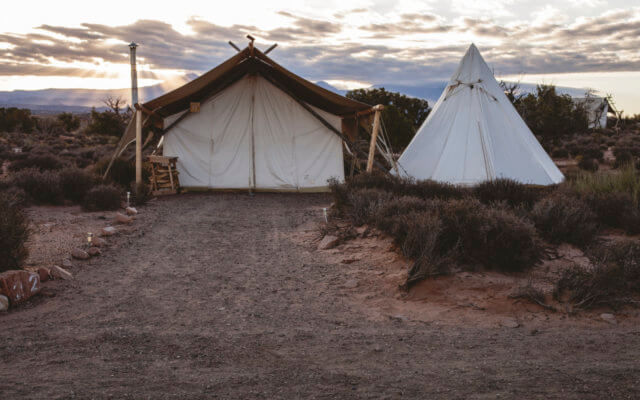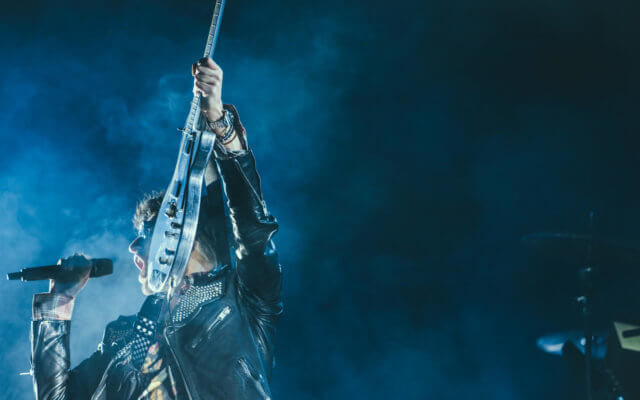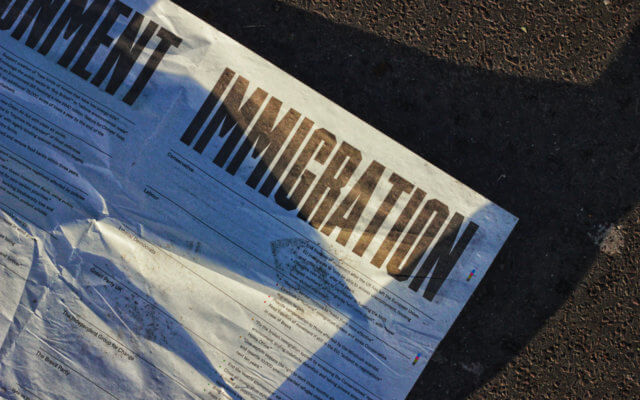ERASMUS+, Key Action 1: training course
Venues and dates:
- 1st part: training course: Dilijan, Armenia, 22—30 November 2023
- 2nd part: System and outreach development activities | Local Campaigns in participating countries | 15 December 2023 – 15 February 2024
- 3rd part: evaluation seminar: Ommen, Netherlands, 14—22 March 2024
National team: 2 participants
Please read the info-pack.
Hosting organisation: Armenian Progressive Youth (APY, Armenia) & Olde Vechte (Netherlands)
Project report from 1. part – training course – Armenia – November 2023:
Participating countries: Armenia, Spain, Czech Republic, Slovakia, Estonia, Belgium, Bosnia and Herzegovina, Georgia, Poland, Italy, Bulgaria, Moldova, Ukraine, Albania, Hungary, The Netherlands, Turkey
Everybody says Armenians are the most loving, welcoming, kind and generous people you’ll ever meet. Armenia is therefore a perfect country to host a project that’s supposed to teach people how to recognize and combat hatespeech!
More that 17 nationalities assembeled on the 22nd November in Dilijan to collect as much knowledge and skills as possible in the span of a single week. Czechia, Slovakia, Poland, Spain, Moldova, Estonia, Italy, Turkey, Belgium, The Netherlands, Georgia, Hungary… These seemingly random countries are connected in one objective: Trying to understand those participating in hatespeech and brainstorming a way of reducing it as much as possible – on the internet, but in real life as well. People of all ages, genders and social classes were kind enough to share their life and work experiences with others.
During our stay, we were taken care of perfectly. We had the opportunity to taste traditional armenian food (loads and loads of lavash!) three times a day and during coffee breaks we were surprised by sweets and delicious desserts. Our accomodation was located deep inside the armenian mountains and forrests, alowing us to concentrate purely on our project and those participating in it. We were able to live within our small diverse society, which is an experience on its own. Poor signal, barely functioning wifi and programme loaded with various activities, workshops and presentations – sounds like a recipe for the best project ever!
At first, we were discussing what is or isn’t hatespeech, what’s exactly the definition, what we ourselves consider hatespeech and where do we draw the line – where does our freedom of expression end and where exactly does hatespeech start? We held many debates, exchanged many opinions and shared many stories and within the first hour understood that this will be a very tiring and challenging, but incredibly enriching and valuable experience that we will be able to derive from in our day to day life.
Our marvelous coaches did an amazing job with presenting activities that made us experience very raw and intense emotions and therefore we were able to take from this project as much as possible. We participated in various workshops that taught us how to be empathetic, how to handle sundry situations, how to actively listen to others, how to lead a productive conversation etc. Speaking of conversations, they did an amazing job of controlling our debates in a way that we move forward, don’t get stuck on a single point, everyone has enough space to express themselves and more importantly: feels safe to do so. They dealt with problems immediately, didn’t try to pretend like nothing’s happening and were objectively very fair. They didn’t force us into anything, we were always free to participate only in the parts of the programme we were comfortable with.
The project itself was great, but what made it even more unforgettable were the people. At first, I was kind of skeptical about the fact that the age difference is so prominent, but I quickly realized what kind of blessing it is to be sharing space with so many different personalities with unique life experiences. I learned so much from each and every one of them and I can’t be more grateful to have met them.
This should be the prototype of a project. The logical structure was ideal, the workshops to presentations to activities ratio was very fitting, the way they constructed the whole project made the whole experience very pleasant and I cannot wait for the second part of it, where all of us will share what we learned and how did we incorporate gained knowledge into our own projects!
Aneta
2. part – local activities – Ostrava, Czech Republic, 22nd February 2024
HateBusters! in Ostrava
With the knowledge gained in Armenia thanks to our incredible trainers, on February 22nd I was able to organize an evening full of activities for university students in Ostrava.
The project was aimed mainly at erasmus students, but since the posters were hung in the dorms that are home not only to erasmus students, but czech and slovak ones as well, we had the pleasure to see the mixture of different cultures and host more than 18 participants.
The project took place in said dorms. There are a few rooms that are used for similar purposes and are free of charge, so we decided to organize our event there. After we finished, we moved to two different bars and continued our conversations there.
My first plan was to organize a living library, but only one student was brave enough to share their story, so I had to change the concept and as a result we were able to come up with various activities that opened interresting discussions and hopefully educated participants on what hate speech actually is, what are the reasons people spread hate, how to deal with it etc.
We started off by talking about rules we must follow: respect others, let others finish a thought before cutting them off, no toleration for insults, screaming and threatening in any shape or form, raising a hand before we want to talk etc. Everybody agreed and we moved to the first activity.
We opened a discussion with the most important question: What is hate speech? Because in order to come up with a solution, we need the definition first. All the people present shared their ideas, opinions, some even personal stories, talking about times where they were the victims of hate speech and how did the surroundings react. Somehow we manages to agree on a definition in the end.
We continued with what was supposed to be a living library. Bartek, one of the erasmus students from Poland, decided to share his story on how he came out as gay to his friends and religious family. He talked about his childhood, how he was raised, what role did the church play in his upbringing, what difficulties he faced, how did people bully him in school because he was clearly different from a very young age… It was quite heartbraking to listen to such a sad story, because his coming out wasn’t a positive memory for him. Some of his family members don’t talk to him to this day, he stopped being friends with some people because they didn’t accept him. It was a very positive experience however, seeing so many people listen to his story with compassion, asking him questions and being so open, welcoming andaccepting. Bartek later shared with me that it was a positive experience for him, even though he wasnervous, because we were able to create somewhat safe space for him to tell his story.
To warm up a little, next activity was a game we played in Armenia. We gathered people in the middle of the room, explained that from now on, the floor is a „scale“ with one side of the room being „I completely agree“, the other „I completely disagree“ and „I don’t know“ in the middle and the goal was for them to stand wherever they feel like after reading a few somehow vague questions to them, such as „Words are violence“, „Hate speech can be beneficial“, „I think everyone should have the right to say whatever they want, even if it could be considered hate speech“, „It should be okay for me to joke aboutwhatever I want“, … After choosing their side, people discussed their opinions, shared their views and we had many very interresting conversations because of how were the questions formulated. Since the group was made out of different nationalities and upbringings, everybody interpreted the questions differently, everybody had their views and they varied based on where were the participants from and what life they lived. It was a very enriching experience.
We continued with a discussion about actually combatting hate speech. People shared a (for me) surprising amount of stories from their life, where exactly they encountered hate speech, what was the situation like, what they did, how did the surroundings react etc. We talked about what’s the fuel of hate speech, why people feel so comfortable spreading hate, what helps them do it and what can we do about it, what role does social media play in it and how the world changed in the past 10 years. We came up with different conclusions for different situations and what made it much more interresting was the fact that not everybody agreed, again, because of their cultures and life experiences.
This is where the official programme ended and we moved to a bar in the campus of the dorms, where we had prepared some more questions on this topic and people could either sit and talk about presented questions and share their opinions, or just enjoy their time with new friends. This bar is also public, so our group wasn’t alone there, so we might’ve influenced more people than actually signed the paper.
I think it was a very well-spent evening, people seemed happy and genuinely curious, weren’t disrespectful, tried to be open minded and presented their opinions very calmly and respectfully. Since I wanted to squeeze all that we learned during a 7-day course into 2-3 hours, it was however very tiring and I would do a lot of things differently next time.
Even though I had help with me, the people helping me weren’t a part of the training course in Armenia, so they tried assisting as much as they could, but even though we met before the event, next time I need to explain more in depth what I need from them, how I imagine the activity to go and all the detailes that I forgot to mention or didn’t even think about mentioning.
I won’t mix so many activities together again. It was nice to mix up between discussing and listening to one person talk and then playing a game, but since we engage in a topic that can get quite heavy pretty easily, I don’t think it’s good to focus on so many things in such a short span. Maybe it was also because the debates lasted quite a long time and we really talked the points that were made through. It was very tiring both physically and mentally, but it was worth it.
I’m really glad I had the opportunity to organize such event. It was a huge learning experience for me as well and I think it went as well as possible given all the circumstances. I’d gladly do it again, this time improved!
Project report from 3. part – seminar – Netherlands – March 2024:
Participating in the Erasmus+ program’s final chapter in Ommen, Netherlands, was an honor that brought me into a vibrant learning and cultural exchange environment, emphasizing impactful social action. This concluding segment, nestled within the enriching framework of Erasmus+, offered an unparalleled blend of experiences.
As participants gathered from various locations, our initial evening was filled with warmth as we reconnected, sharing the growth and experiences since our last meeting. A substantial part of our discussions focused on the progress of local actions initiated post the first two program parts, aiming to implement our learnings within our communities.
A pivotal day was dedicated to exploring the Representation of Minorities in Media, addressing critical issues concerning gender, sexuality, race, and disabilities. This exploration was not just about discussion but understanding and recognizing the impact of media representation.
Following a day of rest, where we freely explored and bonded—my adventure took me to Amsterdam—the program resumed its core mission. The presentations of local actions were heartwarming, showcasing initiatives from various countries and fostering an environment of feedback and communal learning.
A game highlighting societal privileges and inequalities sparked profound discussions on social justice, marking a significant moment of insight and reflection within the program. As we transitioned to direct action, our choice of causes—spanning disability rights, mental health, gender equality, LGBTQ+ advocacy, and anti-racism—mirrored the program’s dedication to inclusivity and making a tangible impact.
Our mission in Ommen to spread positivity culminated in crafting over 200 messages in English and Dutch, accompanied by small gifts and “free hug” initiatives, touching the community deeply and showcasing the power of empathy and solidarity in driving societal change.The final day, reserved for reflection and evaluation, underscored the immense personal and professional growth experienced through the program. It was clear that the Erasmus+ experience had enriched us, offering new perspectives on cultural exchange and social action.
In essence, our journey in Ommen was a profound amalgamation of learning, growth, and action, illustrating the transformative power of education, art, and direct engagement in fostering a more connected, empathetic, and inclusive world. This experience was not just a project but a unique and amazing journey that has inspired us to continue making a difference in our communities. I’m glad I was a part of something so unique and so amazing. Thank you for this incredible opportunity.
Denisa S.


